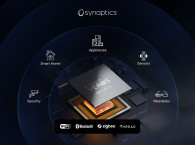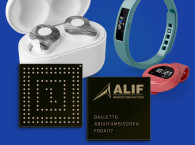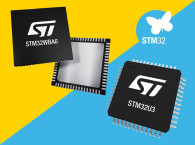While these solutions promote “smart home” and are valuable to empower developers to design future-proof Matter applications, they are essentially “remote control” oriented devices that don’t directly target the related streaming media capabilities - which are the main reason why homeowners invest in their infrastructure that enables the smart home. Yet, any device and solution that advances the deployment of Matter-based smart home applications is always an important step in the right direction, and something that the audio industry could benefit largely. That is, if Silicon Labs and all other key industry players stop using the term “IoT”.
Foolishly, the semiconductor industry continues to double-down on the failed concept of “Internet-of-Things” (IoT) which is completely meaningless to consumers (and now increasingly a negative term for investors). If it needs to exist, “IoT” should stay restricted to industrial applications and kept out of (smart) building and home applications. “IoT” inspires a lack of privacy and security in consumers - for those that still didn’t understand what we are talking about. People want their Smart Home to symbolize “user-control” and not “things having access to my home”. Get it?
“With MG26, we're not just setting a new standard in multiprotocol wireless performance for battery-based, low-power smart home applications — we're redefining what's possible for the future of IoT connectivity with Matter," says Jacob Alamat, Senior Vice President for the Home and Life business unit at Silicon Labs. "This device empowers developers to create smarter, safer, and more powerful solutions in an increasingly connected world."
And even though they insist on calling their Matter solutions “IoT”, Silicon Labs reinforces the security aspects of the new MG26 SoCs. “Further enhancing security through its Custom Part Manufacturing Service (CPMS), Silicon Labs is the only Matter SoC device maker that allows customers to customize their order with their own Matter device attestation certificates (DAC), simplifying and accelerating product launches using Silicon Labs Matter-enabled SoCs while preventing IP theft and counterfeiting,” they say.
As a leading semiconductor code contributor to Matter, Silicon Labs’ MG26 SoC family significantly advances Matter adoption with its concurrent multiprotocol capabilities, enabling integration of various Smart Home and Building devices like LED lighting, switches, sensors, and locks into both Matter and Zigbee networks simultaneously. This allows users to create automations and routines that incorporate more devices across different ecosystems.
In addition, the MG26's AI/ML capabilities using its embedded accelerator also enhance its performance in anticipated-but-unproven tasks like predictive maintenance, anomaly detection, keyword detection, vision, and other things that manufacturers will eventually implement. To help developers build devices capable of running these advanced applications, the MG26 family offers higher compute in a multicore format with an ARM Cortex-M33 CPU and dedicated cores for the radio and security subsystems, freeing up the main core for customer applications.
Doubled Flash, RAM, and GPIO capacity compared to the MG24 device family allow developers to design advanced edge applications that leverage larger, more accurate machine learning models for improved performance. It also allows for the processing of larger machine learning workloads like higher resolution vision. Essentially, this enables more intelligence and processes to remain on-device and not require connections to any external providers, services, or resources.
According to Silicon Labs, embedded AI/ML hardware acceleration enables up to 8x faster processing of machine learning algorithms using as little as 1/6th the power compared to running on the CPU. Silicon Labs' new AI/ML Developer Journey education and training resources provide an easy on-ramp for developers to start building new models to take advantage of this processing power.
Again, on the topic of security and privacy, these SoCs benefit from best-in-class security with Silicon Labs Secure Vault and ARM TrustZone, compliant with all Matter security requirements. Using Silicon Labs Custom Part Manufacturing Service, MG26 devices can also be programmed with customer Matter device attestation certificate (DAC), security keys, and other features in the fabrication process on demand, further hardening them against vulnerabilities. Secure OTA firmware updates in conjunction with Secure Boot prevent the installation of malicious software and allow for vulnerability patching.

Examples mentioned of Matter devices that are supported by Silicon Labs devices include smart locks from Austrian manufacturer Nuki, which will enter the U.S. market in 2025. The Matter ecosystem is anticipated to experience significant growth, driven by new device types with enhanced security and more reliant on local, on-device processing.
For more information about how to develop Matter- and AI/ML-enable devices using Silicon Labs devices, the company created a series of new online resources and is promoting new online events:
The Silicon Labs Matter Developer Journey
Register for the March 18 Tech Talk introducing the MG26
www.silabs.com







